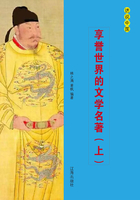The Flower of Eden
PHOEBE, coming so suddenly from the sunny daylight, was altogether bedimmed in such density of shadow as lurked in most of the passages of the old house. She was not at first aware by whom she had been admitted. Before her eyes had adapted themselves to the obscurity, a hand grasped her own with a firm but gentle and warm pressure, thus imparting a welcome which caused her heart to leap and thrill with an indefinable shiver of enjoyment.
She felt herself drawn along, not towards the parlor, but into a large and unoccupied apartment, which had formerly been the grand reception-room of the Seven Gables. The sunshine came freely into all the uncurtained windows of this room, and fell upon the dusty floor; so that Phoebe now clearly saw--what, indeed, had been no secret, after the encounter of a warm hand with hers--that it was not Hepzibah nor Clifford, but Holgrave, to whom she owed her reception. The subtile, intuitive communication, or, rather, the vague and formless impression of something to be told, had made her yield unresistingly to his impulse. Without taking away her hand, she looked eagerly in his face, not quick to forebode evil, but unavoidably conscious that the state of the family had changed since her departure, and therefore anxious for an explanation.
The artist looked paler than ordinary; there was a thoughtful and severe contraction of his forehead, tracing a deep, vertical line between the eyebrows. His smile, however, was full of genuine warmth, and had in it a joy, by far the most vivid expression that Phoebe had ever witnessed, shining out of the New England reserve with which Holgrave habitually masked whatever lay near his heart. It was the look wherewith a man, brooding alone over some fearful object, in a dreary forest or illimitable desert, would recognize the familiar aspect of his dearest friend, bringing up all the peaceful ideas that belong to home, and the gentle current of every-day affairs.
And yet, as he felt the necessity of responding to her look of inquiry, the smile disappeared.
"I ought not to rejoice that you have come, Phoebe," said he.
"We meet at a strange moment!"
"What has happened!" she exclaimed. "Why is the house so deserted? Where are Hepzibah and Clifford?""Gone! I cannot imagine where they are!" answered Holgrave.
"We are alone in the house!"
"Hepzibah and Clifford gone?" cried Phoebe. "It is not possible!
And why have you brought me into this room, instead of the parlor?
Ah, something terrible has happened! I must run and see!""No, no, Phoebe!" said Holgrave holding her back. "It is as Ihave told you. They are gone, and I know not whither. A terrible event has, indeed happened, but not to them, nor, as I undoubtingly believe, through any agency of theirs. If I read your character rightly, Phoebe," he continued, fixing his eyes on hers with stern anxiety, intermixed with tenderness, "gentle as you are, and seeming to have your sphere among common things, you yet possess remarkable strength. You have wonderful poise, and a faculty which, when tested, will prove itself capable of dealing with matters that fall far out of the ordinary rule.""Oh, no, I am very weak!" replied Phoebe, trembling. "But tell me what has happened!""You are strong!" persisted Holgrave. "You must be both strong and wise; for I am all astray, and need your counsel. It may be you can suggest the one right thing to do!""Tell me!--tell me!" said Phoebe, all in a tremble. "It oppresses, --it terrifies me,--this mystery! Anything else I can bear!"The artist hesitated. Notwithstanding what he had just said, and most sincerely, in regard to the self-balancing power with which Phoebe impressed him, it still seemed almost wicked to bring the awful secret of yesterday to her knowledge. It was like dragging a hideous shape of death into the cleanly and cheerful space before a household fire, where it would present all the uglier aspect, amid the decorousness of everything about it. Yet it could not be concealed from her; she must needs know it.
"Phoebe," said he, "do you remember this?" He put into her hand a daguerreotype; the same that he had shown her at their first interview in the garden, and which so strikingly brought out the hard and relentless traits of the original.
"What has this to do with Hepzibah and Clifford?" asked Phoebe, with impatient surprise that Holgrave should so trifle with her at such a moment." It is Judge Pyncheon! You have shown it to me before!""But here is the same face, taken within this half-hour" said the artist, presenting her with another miniature. "I had just finished it when I heard you at the door.""This is death!" shuddered Phoebe, turning very pale. "Judge Pyncheon dead!""Such as there represented," said Holgrave, "he sits in the next room. The Judge is dead, and Clifford and Hepzibah have vanished!
I know no more. All beyond is conjecture. On returning to my solitary chamber, last evening, I noticed no light, either in the parlor, or Hepzibah's room, or Clifford's; no stir nor footstep about the house.















